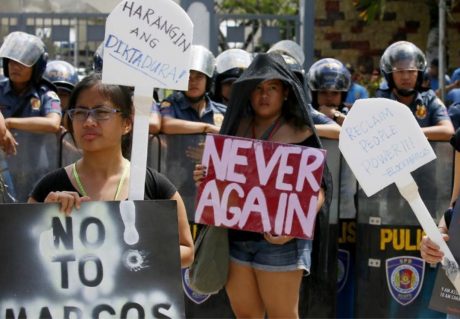
That’s right. Congress, after all, is a government branch whose primary role in government is to craft laws. As such, the important question Filipinos need to ask of their candidates in the coming 2019 elections is this:
What is your legislative agenda?
And that is the easy bit. The harder follow-up to this question (assuming the candidate or party can cough up a coherent response) is this:
How does this legislative agenda fit within the framework of your long-term strategic vision?
An excellent legislative agenda worth its legislator’s salt, after all, would naturally emerge if one has a long-term vision of what the Philippines might look like, say, five or ten years from now. To get to that five- to ten-year vision requires, of course, a means and a roadmap. The roadmap would be the strategy, and the key milestones within that roadmap would be legislative achievements. Executing the vision would then involve traversing said road and passing each milestone.
In that regard, it is easy to see how simply slinging mud at one another, playing the Victim Card, engaging in necropolitical “activism”, and virtue signalling for the cameras will neither crystallise such a vision nor get anyone anywhere near the end of that strategic pathway. Unfortunately for Filipinos, they are stuck with an Opposition that focuses all of its efforts on exactly those unproductive endeavours. This is why it is important that the Opposition ditch the Liberal Party (a.k.a. the Yellowtards) where much of this retarded thinking originates. Only this way will the more important job of defining a vision and crafting a legislative agenda consistent with it become a true priority.
Nonetheless, Filipinos need to apply a critical mind when deciding who to vote for in the coming elections. In the Philippines, unfortunately, personalities are pitched to voters much the same way a bar of soap is marketed. It’s all in the branding. Nebulous notions like “disente” and “dissent” as well as various liberalist concepts like feminism and “human rights” are thrown into a cauldron of clichés out of which are produced the campaign collateral that then gets parroted over mainstream media ad nauseum by candidates and supporters alike.
Filipinos need to recalibrate the way they consume media, evaluate online content, and understand what is coming out of politicians’ mouths to make themselves immune from these quaint and obsolete mind tricks. More importantly, they need to learn to look past mere platitudes and demand that assertions and claims made by politicians and “influencers” be based on really clear and well-defined terms. For example, a claim to wage a “war on fake news” cannot simply be taken at face value. It is a mere motherhood statement that, to true stakeholders in the wellbeing of the nation, are all essentially meaningless.
It could start by habitually asking two simple questions:
What do you mean by that?
So what?
Thus, when a politician or “influencer” promises to mount, say, a “war on fake news”, ask the above two questions and watch them squirm.
It does not take much to apply an intelligent mind to one’s duty to contribute to democratic exercises like elections. Often it is just a simple matter of asking the right questions and not simply lapping up and swallowing whole whatever verbage polticians and “influencers” issue without even the least bit of a chew.

No comments:
Post a Comment